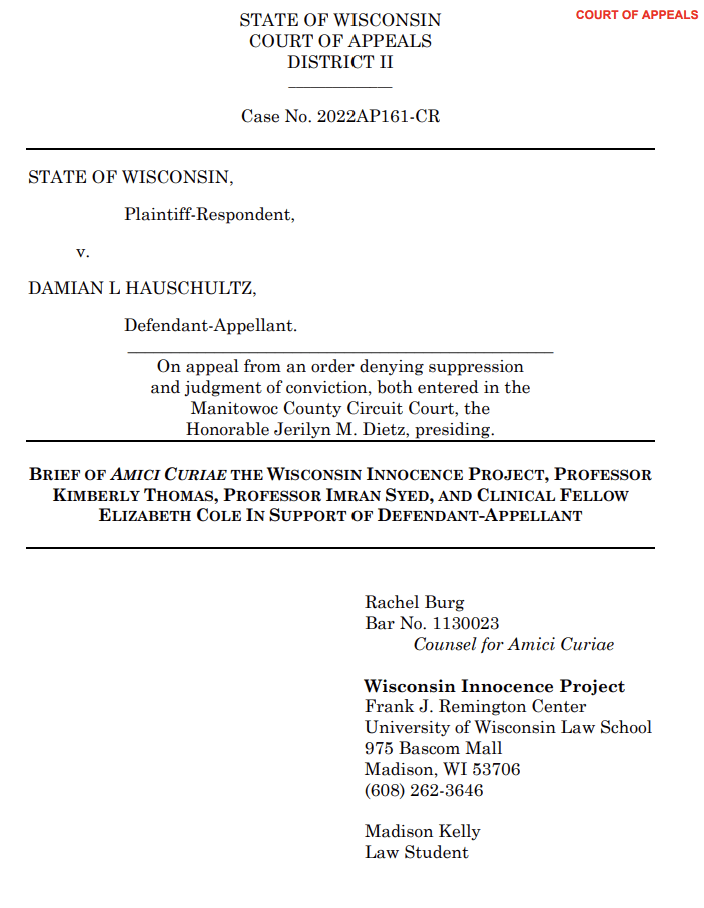
Summary of Argument
Contrary to intuition and public perception, false confessions happen at an alarming rate. Of the 375 documented DNA exonerations through 2020, 29 percent – or 108 cases – involved false confessions. These cases reveal that current psychologically coercive police interrogation techniques “induce a frighteningly high percentage of people to confess to crimes they never committed.” Corley v. United States, 556 U.S. 303, 321 (2009). When psychological interrogations are applied to children, the risk of false or involuntary confessions is magnified and increases as the child’s age decreases.
As amicus in this case, the Wisconsin Innocence Project is devoted to the exoneration of wrongfully convicted individuals and the improvement of the criminal justice system. Amicus Kimberly Thomas is an academic and clinician who focuses on criminal law and procedure and juvenile justice. Amici Imran Syed and Elizabeth Cole are academics and clinicians who focus on criminal law and wrongful convictions.
Amici have an interest in ensuring that the full range of constitutional protections are afforded to all individuals – including children – during interrogation. Amici respectfully offers this brief to present a broad legal and scientific perspective on false and involuntary confessions to the end of informing the Court’s determination of the specific coercive factors in this case and how they may have affected a fourteen-year-old child.